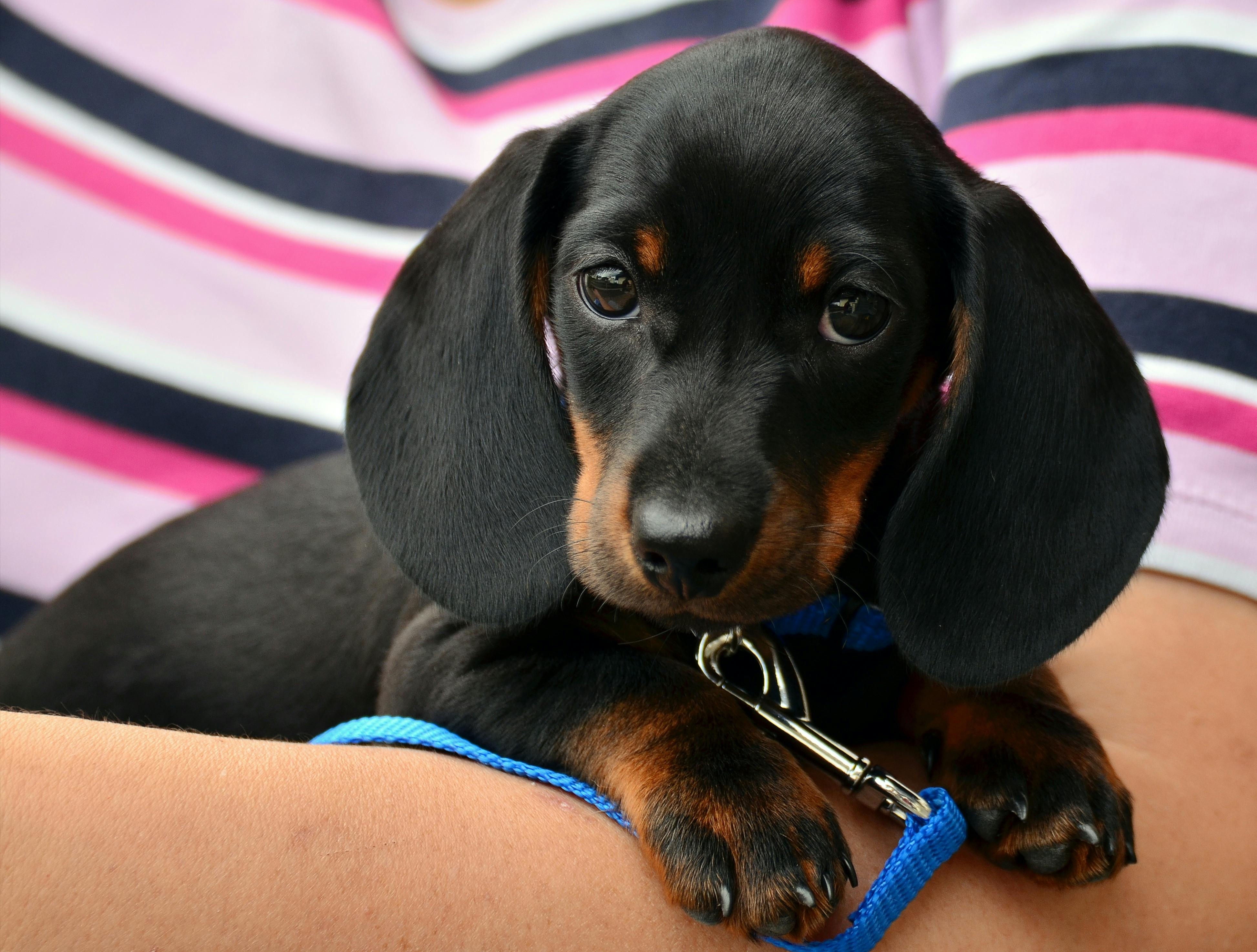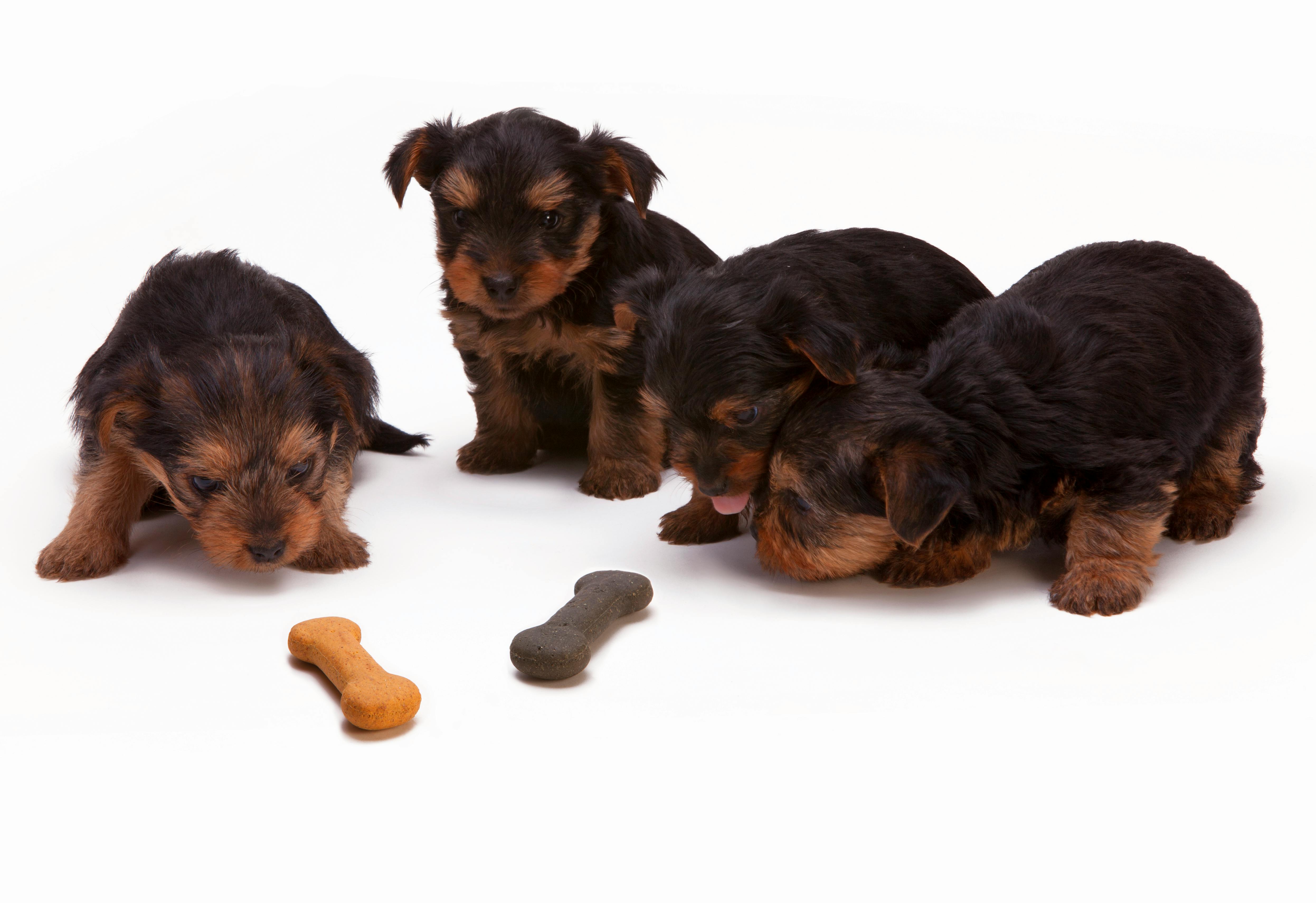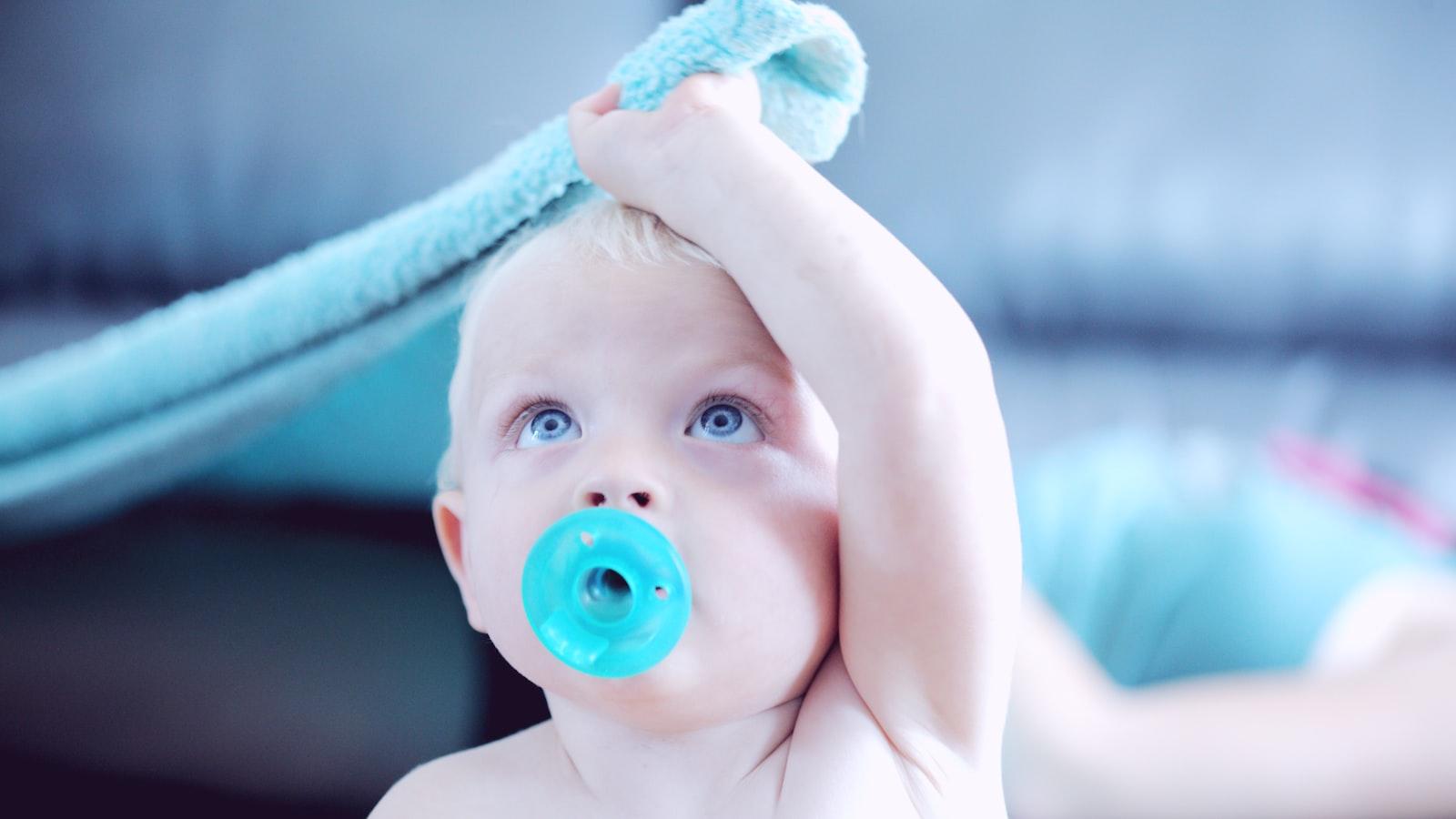Dogs are known for their love and loyalty and they often express it in different ways. One of the common ways is licking. It’s normal for dogs to show affection by licking people, but when it comes to your baby, you might be wondering why your dog is so eager to lick them. In this article, we’ll explore why does my dog lick my baby and how to manage this behaviour.Dogs may lick a baby for many different reasons. They might simply be showing affection, as licking is a common way for dogs to express their love and bond with people. Additionally, the baby’s skin may smell different than an adult’s, which can cause the dog to be curious and want to explore further with its tongue. Lastly, the baby’s movements and sounds may be seen by the dog as an invitation to play, prompting it to lick the baby in an attempt to initiate a game.
Why Dogs Lick Babies?
Dogs licking babies is a common sight, and the act typically elicits a smile from onlookers. But why do dogs lick babies? It turns out that licking is an instinctive behavior for canines, and it serves several purposes. Dogs will often lick babies to show affection and build a bond with them. Licking also helps to strengthen the social hierarchy within a pack, so when a dog licks a baby, it may be trying to show its dominance. Additionally, dogs lick babies as part of their grooming process, similar to how they would groom their own puppies.
The act of licking can also be comforting to babies. When dogs lick them, it’s likely because they are trying to soothe or calm the child. Dogs may also use licking as an exploratory behavior; they may want to learn more about the baby by tasting its skin or hair. Finally, some experts believe that dogs lick babies out of boredom or simply because it feels good.
Overall, dogs have many reasons for licking babies and most of these behaviors are harmless and even beneficial in some ways. The important thing is to ensure that the dog is healthy and has been properly trained before allowing it around children. That way, everyone can enjoy this cute and endearing behavior safely!
Is Dog Licking Unsafe for Babies?
Dog licking is a common behavior that many pet owners find endearing, but when it comes to babies, it may not be the safest option. While there are no proven health risks of dog licking babies directly, there are some potential concerns that parents should consider before allowing their pet to lick their baby.
First and foremost, there is a risk of infection from bacteria or other microorganisms that may be present on a dog’s tongue. While most dogs are well-groomed and have healthy hygiene habits, it is still possible for them to be carrying bacteria or viruses that can cause illness in humans. Therefore, it is important to make sure your pet is up-to-date on all its vaccinations before allowing them to interact with your baby.
In addition, saliva from dogs can sometimes contain allergens that can cause allergic reactions in some people. Although the risk of an allergic reaction from dog saliva is low, it is still something parents should keep in mind before allowing their pet to lick their baby’s skin or face.
Finally, it is important for parents to remember that dogs do not always understand boundaries. If a dog does not understand that licking a baby’s face or skin can be harmful, they may continue to do so even if the baby doesn’t like it or if the parent has asked them not to do so. Therefore, it is important for parents to make sure they teach their pet proper boundaries when interacting with their child.
Overall, while there may not be any proven health risks associated with dog licking babies directly, there are still potential concerns that parents should take into consideration before allowing their pet to lick their baby’s skin or face. By making sure your pet is up-to-date on all its vaccinations and teaching them proper boundaries when interacting with your child, you can help ensure everyone stays safe and healthy.
Benefits of Dog Licking Babies
Dog licking babies is a common sight in many households where people have pets. There are a number of benefits to this behavior, and it’s important to understand why it can be beneficial for both the baby and the dog.
One of the biggest benefits is that it encourages bonding between the two animals. Dogs naturally want to please their owners, and this behavior helps to show that they are pleased when their owner interacts with them. The act of licking also releases endorphins in the baby, which can help to reduce stress levels and make them feel more relaxed.
Another benefit of dog licking babies is that it can help keep them clean and healthy. The saliva from the dog contains natural antibacterial properties which can help to keep any bacteria or germs away from the baby’s skin. This can help prevent illnesses such as colds or flu, as well as any skin infections that might occur due to contact with unclean surfaces.
Finally, dog licking babies can provide emotional comfort for both animals. It is a sign of affection from the dog, which can be comforting for both parties involved. In addition, it helps babies learn about how to interact with animals in a safe way and gives them an opportunity to practice social skills in a safe environment.
Overall, there are many benefits to allowing dogs to lick babies safely and responsibly. It encourages bonding between animals, keeps babies clean and healthy, and provides emotional comfort for both animals involved. As long as this behavior is done safely and responsibly under parental supervision, there should be no cause for concern for either party involved.
Stop Your Dog From Licking Your Baby
Licking is one of the most common behaviors that dogs exhibit. Unfortunately, it can also be one of the most dangerous behaviors when it comes to babies. Dogs can carry a variety of bacteria and parasites in their saliva, which can make your baby ill if they are licked. To keep your baby safe, it’s important to stop your dog from licking them.
The first step in stopping your dog from licking your baby is to identify why they are doing it in the first place. It could be that they are seeking attention or just trying to show affection. If this is the case, you’ll need to provide other forms of attention or affection for them instead of allowing them to lick your baby.
The next step is to use positive reinforcement training techniques to teach your dog that licking is not allowed. When you see them licking, immediately give a firm “No!” command and remove them from the area. You should also reward them with treats and praise when they do not lick or display better behavior around your baby.
It’s also important to keep an eye on your dog at all times when they are around your baby so that you can intervene if necessary. Make sure you have a safe area for them to go where they cannot access your baby and make sure that any toys or items that could be dangerous are kept out of reach.
Finally, if all else fails, consider consulting a professional trainer or animal behaviorist for help in stopping the behavior safely and effectively. They may be able to offer more specific advice tailored to you and your dog’s situation that will help keep both you and your baby safe from any potential harm caused by licking.
With patience and consistency, you should eventually be able to stop your dog from licking your baby and keep them safe from any potential harm caused by their saliva.

Change in Environment
One of the main reasons why dogs may not like babies is due to the sudden and drastic change in environment. Dogs are creatures of habit and when a new baby arrives, it can be a huge adjustment to their daily routine. This can cause them to act out in ways that they wouldn’t normally, such as growling or barking. Additionally, babies bring a lot of noise and mess into the home which can be very unsettling for dogs.
Fear of the Unknown
Another reason why dogs may not like babies is because they may fear the unknown. Babies are small and fragile, so they may seem intimidating or even scary to some dogs. Additionally, dogs don’t understand why a baby is crying or making strange noises, so this can cause further confusion and anxiety.
Lack of Attention
Finally, many dogs may not like babies because they are no longer receiving as much attention as before. This can be especially true if there is only one parent at home with the baby; all of their time may be consumed with caring for the baby instead of spending quality time with their dog. Dogs require love and attention just like any other pet in order to feel happy and secure, so it’s important to make sure that they still get enough affection even when a new baby arrives in the home.
What Causes Dogs to Lick Unusually Excessively?
Dogs licking themselves or people is perfectly natural and normal, however excessive licking can be a sign of a larger problem. While dogs may lick for attention, comfort, or even just out of boredom, there are several medical issues that cause dogs to lick themselves excessively. This behavior can point to underlying physical or psychological issues that should be addressed by a veterinarian.
One potential cause of excessive licking in dogs is allergies. Environmental allergies can cause extreme itching and discomfort which may lead to obsessive licking. Allergies can also be caused by food intolerance or sensitivity, in which case changing the dog’s diet may help reduce the behavior.
Another possible cause of excessive licking is boredom or lack of exercise. Dogs need mental and physical stimulation to remain healthy and happy; without it they may resort to behaviors like excessive licking as a way to pass the time or alleviate stress. Providing your dog with regular exercise and plenty of toys and activities can help reduce this behavior.
Excessive licking can also be caused by pain or irritation due to an injury, infection, parasites, or other medical issue. This type of behavior should always be evaluated by a veterinarian in order to identify the underlying cause and provide appropriate treatment.
In some cases, excessive licking may indicate anxiety or compulsive disorder which requires psychiatric treatment from an animal behavioral specialist. Medication or other forms of therapy may help reduce this behavior over time.
Overall, it is important to understand that excessive licking is not normal behavior for dogs and should not be ignored. If your dog is exhibiting this type of behavior it is important to consult with your veterinarian in order to identify the underlying cause so that appropriate treatment can be provided.
Signs a Dog is Uncomfortable With a Baby
Interacting with an infant can be a challenge for any dog, especially if the dog has never been around babies before. However, it is important to keep an eye out for signs that your dog may be uncomfortable with the new arrival. Signs that your dog may be uncomfortable include avoiding the baby, growling or barking at the baby, or displaying other aggressive behaviors such as snapping or lunging. If you notice any of these behaviors, it is important to take steps to make sure your pet and your child remain safe.
Another sign that your pup may be uncomfortable with a baby is if they become overly anxious or stressed when in their presence. This can manifest itself in different ways, such as panting heavily, pacing back and forth, or trembling. If you notice any of these signs, it is important to take steps to help your pup feel more comfortable around the baby.
Some dogs may even try to hide from the baby when they are in the same room, or try to get away from them whenever possible. If you notice this behavior in your pup, it could be a sign that they are feeling overwhelmed by the new situation and need some time alone. Give them some space and wait until they feel more comfortable before introducing them again.
It is also important to keep an eye out for signs of aggression towards the baby. This can include growling or barking when they are near them, as well as attempting to bite or lunge at them. If you witness any of these behaviors it is important to intervene immediately and provide extra supervision whenever the two are together.
Interacting with a new baby can be daunting for any dog but by being aware of potential signs of discomfort you can take steps to ensure that both your pup and your little one stay safe and happy.

Conclusion
It is clear that there are various reasons why a dog may lick a baby. Most of the time, it is a sign of affection and can be beneficial for both the baby and the dog. It can also help to strengthen the bond between them and provide comfort to both. However, there are times when it could be an indication that something is wrong, so it is important to keep an eye out for other signs that may indicate that something is wrong. In conclusion, understanding why your dog licks your baby can help you know what kind of behavior to expect and how to respond accordingly.
It is important to remember that dogs are animals with feelings and needs just like us humans. By understanding their behavior and responding appropriately, we can build strong relationships with our pets that will last a lifetime.




